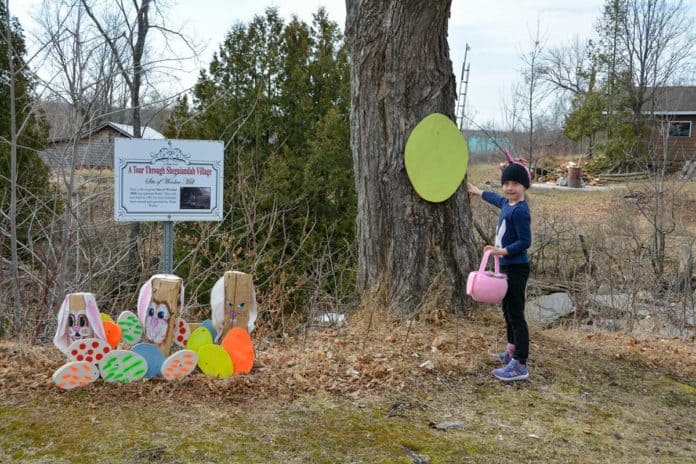Part I of a series
Island man shares story of family violence victimization
MANITOULIN – An oft-overlooked part of the issue of family and intimate partner violence is that while men overwhelmingly commit the most severe physical harm against women, men are also at risk of becoming victims of family violence in the broader sense of the word, with some studies pointing to a near-equal sex distribution between victims of all types of domestic violence.
Family violence, particularly intimate partner violence, is traditionally understood as a more woman-victimized issue because female victims tend to experience more severe cases of such behaviour, including sexual assault, severe injury or femicide. Some observers also say male victimization is stigmatized and men may be reluctant to report an incident to police, which reflects in the data because many such studies rely on police statistics.
Male victimization is relatively under-studied but reports that examine anecdotal accounts of violence tend to reveal much higher levels of such occurrences, including a 2009 Statistics Canada study that said over the preceding decades, the rate of men who identify as victims of domestic violence stood just behind that of women.
A Manitoulin Island man said he never knew about male-victim family violence until he found himself in that position, dealing with an abusive partner who upended his life. He agreed to share his story with The Expositor, on the condition of anonymity, to help other people realize that this hidden problem is both widespread and devastating.
The story begins like many others: he met his abuser through a shared hobby and the two eventually began dating and began their family.
He and his partner had disagreements, as many couples go through, but these became more frequent over time. Disputes allegedly included disagreements over how the children should be raised, his partner preventing him from speaking with many of his friends and becoming upset when he said he was uncomfortable engaging in rough bedroom activity, eventually ending intimacy altogether.
“I wasn’t allowed to see my friends. She played my entire family against me and so I was left in a world where I was alone. And that was the way she wanted it,” he said.
By then, the partner had made clear her desire to separate but her husband continued trying to make the situation work for the sake of the children, he says. His partner reportedly began to have affairs at that time and was allegedly very controlling of all aspects of the man’s life.
She began to tell others that he was depressed, suicidal and violent, and spending too much time on work, hobbies and raising the children instead of with her. They tried relationship counselling but that process met friction with different counsellors.
The relationship severed one night when, in the midst of an argument, the man went into a separate room to diffuse the tension. However, the room only had a single entrance and his partner followed him to the doorway, allegedly continuing to taunt him about how she was going to spread false stories that he was dangerous, unpredictable and a threat in order to ruin his life.
“This is when I made my mistake. I needed to get out of the room so I put my hands on her shoulders and moved her to the side so I could leave and get some air. As soon as I did that, she said I had just assaulted her and that my life was now over,” he said. “I think she had been coached to know exactly how to get me to touch her … she knew what she was doing.”
Police soon arrived, put the man in handcuffs and took him for a short jail stay. He did not defend himself at the time because he felt it was futile. Now, he wishes he would have spoken up about the conditions in which he had been living.
“If you are arrested, say something. I think the police will now investigate differently; I hope the police will investigate differently, now that there’s more awareness,” he said.
His charges, in addition to the allegations of death threats, were from pushing, throwing a piece of food at his wife while telling her to shut up, and splashing water on her.
“After hearing year after year that I should just kill myself, that my life was useless, I truly believe she was hoping I would commit suicide that night,” he said. “I made the mistake of fighting back instead of just leaving, but I had young children and I felt I had nowhere to go. My family had turned against me, I had no friends anymore; she completely isolated me.”
After his release, he moved for a short time to another part of the province, where he had to undergo psychological evaluations and interviews with Children’s Aid Society to determine what risk he posed. In order to get his job back he had to see a psychiatrist, a forensic psychologist and a clinical psychologist.
All of the evaluations delivered clean reports and the Children’s Aid worker who interviewed him recognized the signs that he was likely, in fact, a victim of family violence, not the abuser.
That worker’s endorsement was a major step toward him being able to see his children again.
As he began to understand the magnitude of what had happened, and that men could be victims of family violence, he found more support through community members and a former partner of his now ex-partner, who all described noticing similar patterns.
He used this knowledge to formally register with the police as a victim of family violence after his ex-partner soon broke their custody agreement. Since that time, he says he hasn’t had the same issues.
The man now identifies as a survivor of domestic violence but worries about his children. According to a court affidavit from the man’s father, the kids seem stressed when she picks them up from his care.
Some community members remain doubtful of his experience, a fact he accepts that he cannot change.
“People can believe what they want to believe. I’m not going to please everybody, that’s not my business; I don’t feel like I have to prove myself but thankfully, the community has been really supportive as a whole. I don’t walk around hiding,” he said.
Learning more about the signs that someone is living with an abuser is a key way that a whole community can help keep its members safe, beyond acknowledging that abuse can happen to all people.
In a coming edition of this series, this man will share what he’s learned so far during his healing journey.
Victims of family violence are not alone. Men needing support should contact Manitoulin Northshore Victim Services (mnvictimservices.ca; 705-370-3378) or Canadian Centre for Men and Families (menandfamilies.org; 1-844-900-2263). Women facing abuse can access support on-Island through Manitoulin Family Resources (MFResources.net; 24-hour crisis line 705-377-5160). If the situation is an emergency, dial 911.





